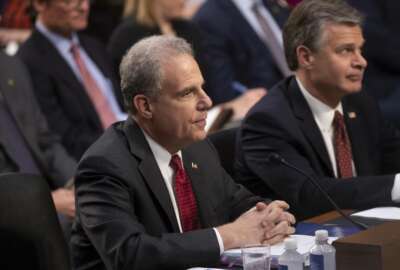How two employees can call a whole agency into question
Individuals doing the right thing: what a concept! It's how to keep an agency from losing its reputation
Many years ago, a friend pulled back the trunk liner of a new Ford he’d recently bought. Next to the spare tire was a crumpled brown bag containing the remains of an assembly line employee’s lunch. Including what looked like a thoroughly gnawed lamb chop.
How would that make you feel about a Ford? I mean, if they leave trash in cars leaving the factory, how can you be sure they remembered all of the piston rings? Turns out the car ran great for years thereafter. But the incident showed how the behavior of a single crank out of a couple of hundred thousand employees can do harm to an organization’s reputation.
Ever since, I’ve never taken title to a car without looking into the crevices where someone’s garbage might be lurking.
Large organizations, both corporate and governmental, face a crisis of faith in their legitimacy. Large numbers of people think all corporations are corrupt, federal employees are all lazy, the media are incapable of telling the truth. You’ve seen the surveys.
Back in July the Justice Department Office of Inspector General released its investigation findings into how an FBI field office and a couple of agents in particular dealt with testimony. The account had been given by one of the Olympic gymnasts, McKayla Maroney, who’d been sexually assaulted by the sicko doctor employed by USA Gymnastics. The doctor will never see another day of freedom, but many enablers have yet to be made accountable.
I read the IG report after the FBI incident burst into the public during last week’s Senate hearings. The IG found a long list of procedural, policy and ethical failures including lying and failing to document a key interview. One of the agents cited tried to get a job with USA Gymnastics — over beers with the organization’s president — while the whole sordid thing was going on. Worse than how these actions failed the FBI, they allowed a sexual predator to continue for a year afterwards.
One senator remarked that perhaps the Justice Department itself doesn’t take the gymnastics scandal seriously.
Thus can one bad individual attract bad inferences about a department of more than 100,000 people. Such reputational damage is hard to undo. Leadership can help by quickly getting rid of people, but that didn’t happen in the FBI case. Now FBI Director Christopher Wray and Attorney General Merrick Garland have a mess to deal with. Not a PR or image issue; a real problem of illegal and reckless behavior by two agents.
Conversely then, individuals doing the right thing day-by-day are what make up a good organization, both functionally and reputationally. What a concept.
Every day the Justice Department publishes stacks of press releases on cases. They’re some of the longest and most detailed press releases to issue from the vast PR machinery that is federal public affairs. Yet despite the self-congratulatory tone and the careful selection of cases, they do show that under normal operating circumstances FBI agents and other federal law enforcement operatives do good work.
In one recent case, a multi-agency team nabbed a Texas man for getting a $1.6 million Paycheck Protection Program loan fraudulently. FBI agents helped in another investigation leading to the indictment of 138 people charged with $1.4 billion worth of health care billing fraud against the Centers for Medicare and Medicaid Services.
Federal law enforcement work is hard enough as it is. Nearly everything gets second-guessed, sometimes for good reason. Still, if an individual can tarnish an agency’s reputation, an individual can also polish it.
Copyright © 2025 Federal News Network. All rights reserved. This website is not intended for users located within the European Economic Area.
Tom Temin is host of the Federal Drive and has been providing insight on federal technology and management issues for more than 30 years.
Follow @tteminWFED
Related Stories





